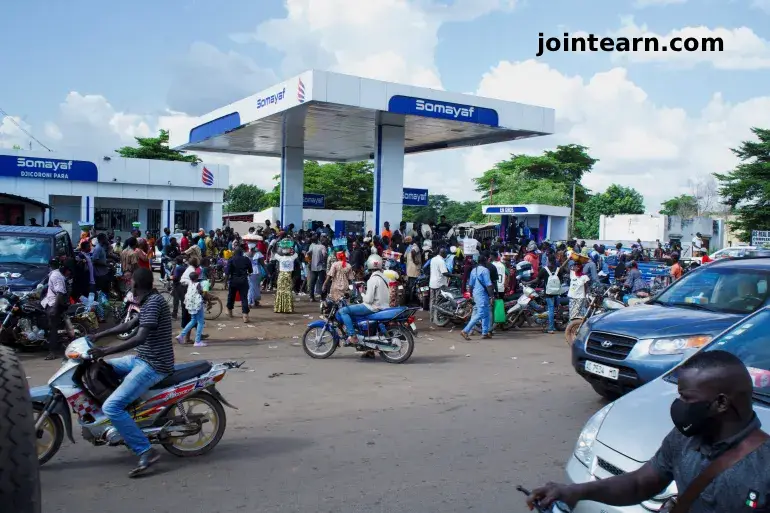
France has urged its citizens to temporarily leave Mali amid a growing security crisis caused by the al-Qaeda-linked Group for the Support of Islam and Muslims (JNIM). The armed group has imposed a fuel blockade that is paralyzing the West African country’s economy, causing school closures, power outages, and widespread disruption in the capital, Bamako.
Fuel Blockade by JNIM
Since September, JNIM fighters have targeted fuel deliveries coming from Senegal and the Ivory Coast, the primary transit routes for Mali’s imported goods. The blockade has led to severe shortages of petrol and essential supplies, crippling daily life across the landlocked Sahelian nation.
Schools have been forced to close, agricultural activities have slowed, and access to electricity has been limited due to fuel shortages. For the first time, JNIM has extended its siege tactics to Bamako, intensifying the crisis in the country’s largest city.
France and Western Nations Respond
In its travel advisory, the French Foreign Ministry warned:
“French nationals are advised to plan a temporary departure from Mali as soon as possible on the commercial flights still available. Travel by land remains inadvisable, as national roads are currently the target of attacks by terrorist groups.”
While France maintains its embassy operations, last week, the United States and United Kingdom announced the evacuation of “nonessential” personnel and their families due to escalating threats. Shipping group MSC has also suspended operations in Mali, citing the blockade and deteriorating security.
Mali’s Military Government Struggles
Since back-to-back coups in 2020 and 2021, which ended France’s military presence in Mali, the country has been governed by a military regime struggling to control multiple armed groups, including JNIM.
President Assimi Goita recently called on citizens to reduce unnecessary travel while promising to restore fuel supply. However, analysts view this as a “terrible admission of failure” by the government. Experts note that the Malian state is increasingly focusing its resources around Bamako to secure the regime rather than the broader country.
Threat Assessment
Despite JNIM’s aggressive tactics, most analysts believe the group lacks the capability to capture Bamako fully. JNIM’s primary objective appears to be controlling territory, expelling Western influence, and destabilizing government authority.
Charlie Werb, an analyst with Aldebaran Threat Consultants, stated:
“I do not believe JNIM possesses the capability or intent to take Bamako at this time, though the threat it now poses to the city is unprecedented.”
Regional Implications
JNIM is one of several armed groups operating across the Sahel, a semi-arid region stretching from North to West Africa, where conflict and terrorist attacks have surged in recent years. The group has been linked to thousands of deaths since 2017 and is known for targeting civilians, particularly those supporting government forces.
The fuel blockade demonstrates both the strategic capabilities of JNIM and the challenges facing Mali’s military government in maintaining security and public confidence.
What This Means for Residents and Travelers
For Malians, the blockade has disrupted basic life, including education, transportation, and access to energy. International travelers, especially French nationals, are strongly advised to leave the country while commercial flights remain available, as overland travel poses significant risks.
As JNIM continues to exert pressure, the Malian government’s response and the international community’s involvement will play a critical role in determining whether the blockade is lifted or escalates further.


Leave a Reply